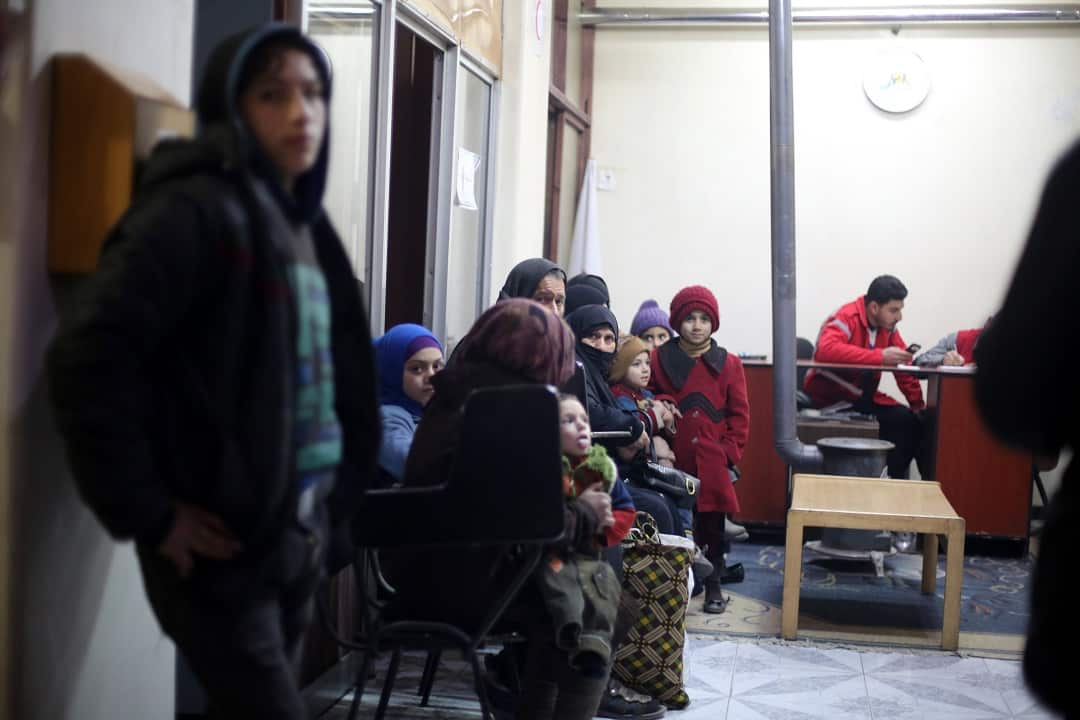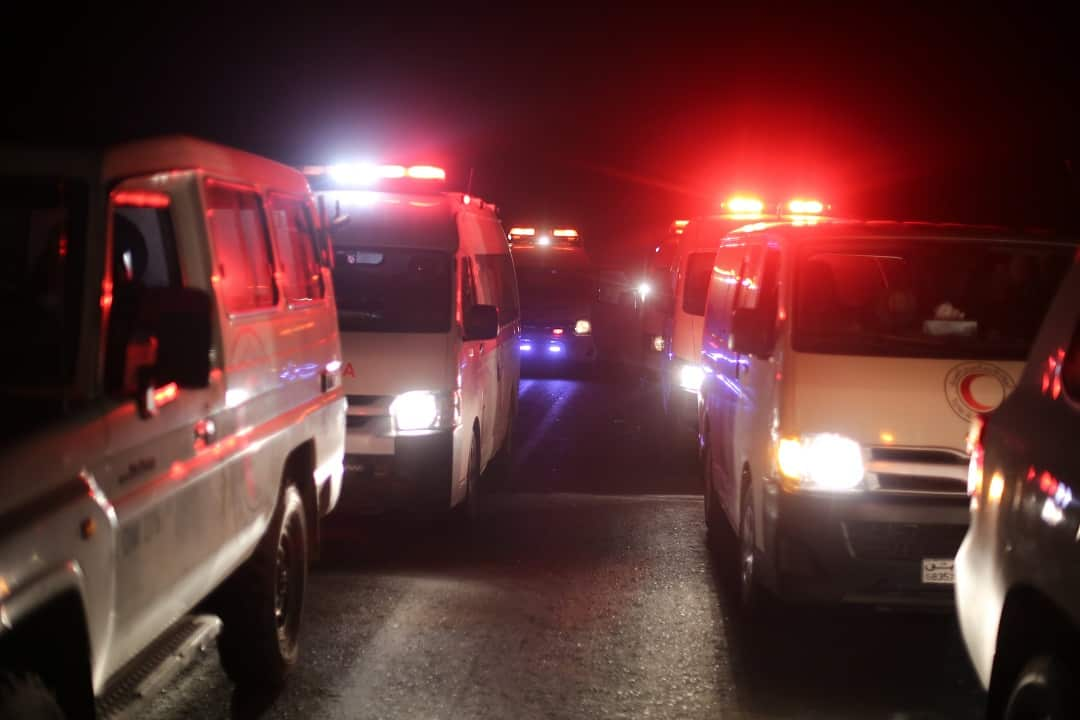Eight-year-old Ingy, the girl with haemophilia, gave a broad smile as she boarded an ambulance, wearing a woolly hat and gloves against the cold.
In another ambulance, one-year-old Mohammed lay in the lap of a Red Crescent worker, his mother sitting beside them in a long black cloak and a veil showing only her eyes.
"The operation is a positive step which will bring some respite to the people of Eastern Ghouta," International Committee of the Red Cross spokeswoman Ingy Sedky said.
"We hope these medical evacuations are only the beginning."
The Syrian American Medical Society, another medical relief organisation, said the remainder of the 29 critical cases approved for evacuation should leave in the coming days.

SARC and ICRC started the evacuation of the 29 cases of critically-ill from Eastern Ghouta to Damascus. Source: SARC
Baby among dead
The dominant rebel faction in Eastern Ghouta, Jaish al-Islam (Army of Islam), said the rebels had agreed to free some of their prisoners in return for the evacuations.
"We have agreed to the release of a number of prisoners ... in exchange for the evacuation of the most urgent humanitarian cases," the group said a statement.
The years of government siege have caused severe shortages in Eastern Ghouta, one of the last remaining rebel strongholds in Syria.
While some food is still grown locally, or smuggled in, humanitarian access to the region has been limited despite regular appeals from aid agencies.
Last week, Jan Egeland, the head of the UN's humanitarian taskforce for Syria, said at least 16 people had died while waiting for evacuation from Eastern Ghouta.
A list put together several months ago of nearly 500 civilians in desperate need of evacuation was rapidly shrinking, said Egeland.
"That number is going down, not because we are evacuating people, but because they are dying," he told reporters in Geneva.
"We have confirmation of 16 having died on these lists since they were resubmitted in November, and it is probably higher," he said, highlighting the case of a baby who died on December 14, as the latest round of Syria peace talks in Geneva ended in failure.
Mr Egeland said evacuations and efforts to bring aid into the region had been blocked by a lack of authorisations from the Syrian authorities.

Ambulance vehicles lined up to transport the critically ill patients from Eastern Ghouta. Source: SARC
IS 'moving with impunity'
The Eastern Ghouta region, near the capital Damascus, is one of four "de-escalation" zones agreed in May in a deal brokered by government backers Russian and Iran and rebel supporter Turkey.
The agreement led to some reduction in fighting but the government kept up its blockade and renewed its bombardment of the enclave in mid-November.
The government stands accused by its critics of using sieges of civilians as a weapon in its war against the rebels.
Rebel fighters pulled out of second city Aleppo and third city Homs, as well as districts of Damascus, only after prolonged blockades caused serious hardship to their families and other civilians.
More than 340,000 people have been killed and millions have been driven from their homes since Syria's conflict erupted with anti-government protests in 2011.
The conflict has since evolved into a complex war involving international powers and jihadists, including the Islamic State group who seized large parts of Syria in 2014.
But the jihadists have seen the territory they once controlled disintegrate in the face of two offensives - one by Russia-backed regime forces and another by a Kurdish-Arab alliance support by a US-led coalition.
That coalition on Wednesday accused Syrian President Bashar al-Assad of allowing the jihadists to move through territory he controls "with impunity".
"The regime is clearly either unwilling or unable to defeat (IS) within their borders," Major General Felix Gedney of the British army said.
The coalition does not plan to pursue IS fighters into regime-held areas, Gedney said, instead calling on Assad to do so.
Share

